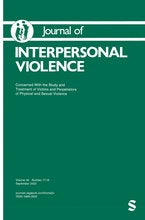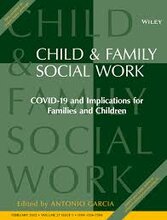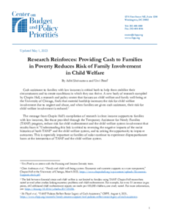Displaying 151 - 160 of 2221
This US-based study explores factors associated with intimate partner violence using longitudinal data from a representative sample of older youth in California Foster Care who participated in the California Youth Transitions to Adulthood Study (CalYOUTH). The authors' IPV outcome measures included victimization, perpetration, bidirectional IPV, and emotional abuse.
In the U.S., youth in foster care are nearly twice as likely as war veterans to suffer from PTSD. Placed in foster care at just 11 months old, 2023 Audacious Project grantee Sixto Cancel experienced the faults of the system firsthand. Now, he's the founder of Think of Us, an organization working to reform child welfare by centering kinship care, or placing a child with an extended family member or a familiar adult. Learn more about his plan to help thousands of kids searching for a loving home with one simple, systemic switch.
This article looks at the strategies foster care workers employ when dealing with worldview differences between a foster family and the birth family reviewing examples from the Netherlands, Denmark and the US.
The report, based on a sampling, found that 200 workers did not have background checks for child abuse or neglect and only 29 did, though 20 of those were not done in a “timely manner.”
This new body of research from Chapin Hall, a research and policy center that focuses on child welfare and family well-being at the University of Chicago, finds that material hardship increases the risk for child welfare involvement due to neglect and abuse, and when families are given cash assistance, child welfare involvement is reduced.
During this webinar, participants explored the dynamics of migrant child labor in the United States. Will efforts to “crack down” on child labor stop exploitation? How will forthcoming changes to U.S. asylum processes impact migrant children and their livelihoods? Most importantly, what do migrant youth have to say about their experiences?
This presentation is by the Children’s Trust Fund Alliance and their colleagues regarding a project they have been working on in partnership with parents to identify alternatives to CPS investigations.
Nearly a month ago, Bianca Clayborne, Deonte Williams, and their five children were on their way from Georgia to Chicago for Clayborne’s uncle’s funeral when a highway patrol officer stopped them in Manchester, Tennessee.
Although the United States joined with the U.N. in 2016 in a pledge to end child marriages by 2030, only seven states and two U.S. territories have made it illegal for people younger than 18 to get married. All other states allow it — sometimes with the permission of a parent, judge or both.
Better Care Network (BCN) is seeking a Community Outreach and Youth Engagement Specialist. The Community Outreach and Youth Engagement Specialist is responsible for ensuring effective information sharing, communication, and engagement of a wide range of stakeholders and partners as part of key inter-agency initiatives which BCN is facilitating, in particular the Transforming Children’s Care Global Collaborative.



